Blog
Relinquishing Control

One topic that we touch upon quite often with our patients at Above & Beyond Acupuncture is control—or, more specifically, being in control. As human beings we like to have control over things, including people, places and events. At times it may seem like control is possible, but in the end it frequently turns out to be a mere illusion. A lot of self-inflicted suffering takes place under the guise of control, so much so that we decided to take some time to discuss this behavior and how important it is to let go of it.
What is the problem with being in control?
Before we can answer that question, we should look at what control means. The Merriam-Webster dictionary defines control as follows: “to direct the behavior of (a person or animal), to cause (a person or animal) to do what you want. To have power over (something).” And finally, “to direct the actions or function of (something), to cause (something) to act or function in a certain way.” [Link]
As we can see by this definition, control has a lot to do with the interactions of people with other things—specifically, efforts toward manipulating behaviors and outcomes. Power and domination over people/animals/objects allows this control to take place. It is this type of behavior that creates a separation between those in control and those being controlled. Ego thrives in these situations; it becomes empowered when people feel they are better than others. In a previous blog titled “Ego Identification,” we discussed in detail what the ego is, how it exerts control over a person, and how to better handle your own ego. This is an important topic. We suggest you take the time to read through that article to get a better understanding of how influential your ego can be.
The main problem with being in control is that oftentimes, it isn’t real. You cannot completely control anyone or anything. You certainly can try, but your efforts will be in vain. Control is an illusion that makes us believe we are in control. It gives us the notion that we can determine how things take place. The sheer amount of variability in life creates an infinite number of possibilities for any outcome. There is no sure thing. The more certain you think you are of something, the greater the chance it will turn out in an unexpected way. Control is something to be relinquished; it needs to be let go.
How many times have you made plans only to see them change? How many times did you think something was going to happen only to have the opposite take place? How many times did you tell a person to do one thing only to have him do another? The biggest question you need to ask yourself is, why do you have to be in control?
Why should I relinquish control?
It’s important to note that by relinquishing control, you are not living a life that’s completely out of control; it’s quite the opposite. The action of letting go and stopping the need to be in control is a move toward going with the flow of life. Instead of trying to proverbially swim upstream against the current, why not go downstream where things can be easier and more peaceful? This is an important analogy, as it allows us to visualize how controlling things is going against the flow while letting go is easier and can lead to a more tranquil existence.
The truth is that you don’t have to be in control to the extent to which you have become accustomed. While your job or role in life might include responsibilities that have some level of control built in, it’s important that you monitor your behavior when exerting it. No one likes to be under the control of another person, yet there are times when it is necessary. Instead of being an authoritarian, try to be more moderate, putting yourself in the shoes of the person(s) you are directing.
When you recognize that you are being overly controlling, it’s important to stop and think about why you feel the way you do and what you can do about it. This requires a substantial amount of mindfulness and “being present.” At first this might prove difficult, especially if this behavior has been a big part of your life. However, if you are vigilant—both in monitoring your actions and striving to be in the present—it will become easier for you to stop this behavior.
If you find yourself constantly needing to be in control of people, places and things, then now is the time to let go. Stop wasting your energy, as this behavior only leads to frustration. Remember, control is more often than not an illusion. You really can’t completely control anyone or anything.









